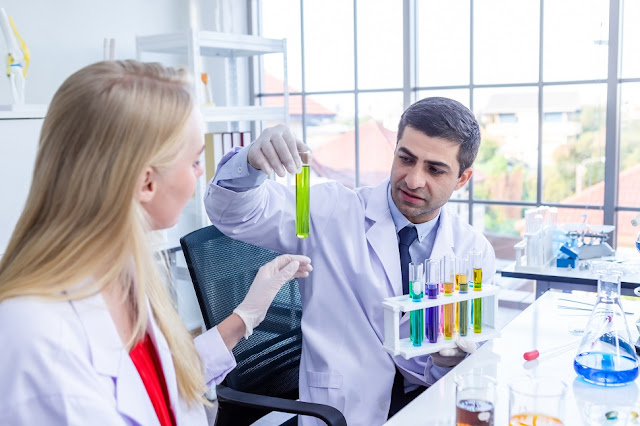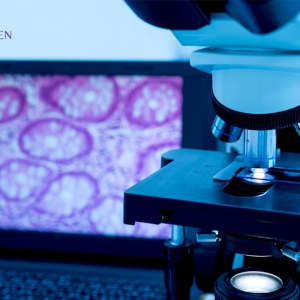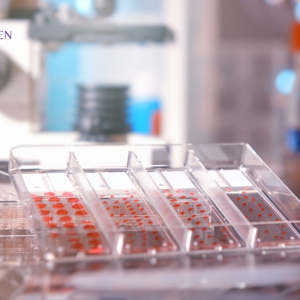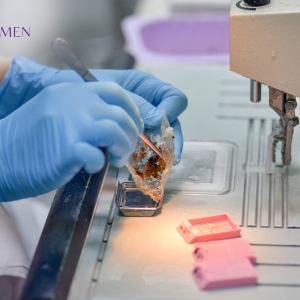Introduction:
Human Biospecimens play a pivotal role in advancing biomedical research, unlocking a treasure trove of information that holds the key to understanding diseases, developing therapies, and ultimately improving human health. In this blog, we will delve into the importance of Human Biospecimens, their various types, ethical considerations, and the crucial role they play in shaping the landscape of scientific discovery.

The Essence of Human Biospecimens:
Human Biospecimens encompass a wide range of biological materials derived from the human body, including blood, tissue, urine, saliva, and more. These specimens serve as tangible reservoirs of biological information, offering valuable insights into the molecular and cellular mechanisms underlying health and disease. Researchers harness the power of biospecimens to study genetic variations, biomarkers, and disease pathways, ultimately paving the way for personalized medicine and targeted therapies.
Types of Human Biospecimens:
- Blood: Blood is a goldmine of information, containing cells, proteins, and genetic material. Serum and plasma derived from blood are particularly valuable for biomarker discovery and disease monitoring. They are instrumental in studying conditions like cancer, diabetes, and infectious diseases.
- Tissue: Tissue specimens, obtained through biopsies or surgeries, provide a deeper understanding of localized diseases and allow for histopathological analysis. Tumor tissues, for instance, aid in cancer research and the development of precision medicine approaches.
- Urine: Urine contains metabolic waste products and can be a non-invasive source for studying kidney function, metabolic disorders, and urinary tract diseases. It provides valuable insights into systemic conditions affecting the body.
- Saliva: Saliva is gaining prominence as a biospecimen due to its ease of collection. It contains cells, proteins, and nucleic acids, offering insights into oral health, infectious diseases, and even hormonal changes.
- Cerebrospinal Fluid (CSF): CSF surrounds the brain and spinal cord, and its analysis is crucial for understanding neurological disorders. Researchers utilize CSF to study conditions such as Alzheimer's disease, multiple sclerosis, and meningitis.
The Importance of Biospecimens in Research:

- Disease Understanding and Diagnosis: Human Biospecimens are indispensable for deciphering the molecular basis of diseases. By analyzing biospecimens, researchers can identify specific biomarkers associated with diseases, enabling early detection and accurate diagnosis.
- Drug Development and Therapeutics: Biospecimens play a crucial role in drug development, helping researchers identify potential drug targets and evaluate the efficacy of new drugs. They are essential in preclinical and clinical trials, guiding the development of therapeutics for various conditions.
- Personalized Medicine: The era of personalized medicine relies heavily on biospecimens. Studying individual variations in genes and proteins allows for tailored treatment plans, minimizing adverse effects and optimizing therapeutic outcomes.
- Biomarker Discovery: Biospecimens contribute significantly to the identification of biomarkers—indicators of normal or pathological biological processes. Biomarkers aid in disease diagnosis, prognosis, and monitoring treatment responses.
Challenges and Ethical Considerations:
While the use of Human Biospecimens is undeniably valuable, ethical considerations and challenges surround their collection, storage, and usage:
- Informed Consent: Obtaining informed consent from individuals donating biospecimens is a critical ethical consideration. Individuals should be fully informed about how their samples will be used, ensuring transparency and respect for autonomy.
- Privacy Concerns: As biospecimens often contain genetic information, ensuring donor privacy is paramount. Researchers must implement robust measures to safeguard the confidentiality of donor identities and genetic data.
- Equitable Access: There is a need to address issues of equitable access to biospecimens, particularly in global research collaborations. Ensuring that diverse populations are represented in biospecimen collections enhances the generalizability of research findings.
- Long-term Storage: Maintaining the integrity of biospecimens over time is a logistical challenge. Proper storage conditions, including temperature and humidity control, are crucial to preserving the biological material's quality for future research.
Global Initiatives and Biobanks:
To address the challenges associated with Human Biospecimens research, numerous biobanks and initiatives have emerged globally. Biobanks are repositories that systematically collect, store, and distribute biospecimens for research purposes. Examples include:
- The Cancer Genome Atlas (TCGA): TCGA is a landmark initiative that has generated comprehensive genomic data from various cancer types. It has significantly contributed to our understanding of cancer biology and has paved the way for precision oncology.
- The UK Biobank: This large-scale biobank in the United Kingdom houses samples from half a million participants. It provides a rich resource for studying the genetic and environmental factors influencing health and disease.
- The Framingham Heart Study: This long-term study, initiated in 1948, has been instrumental in understanding cardiovascular health. Biospecimens collected from participants have contributed to groundbreaking research on heart disease risk factors.
- Global Alliance for Genomics and Health (GA4GH): GA4GH is an international coalition working towards promoting responsible sharing of genomic and health-related data. It aims to establish standards and frameworks for ethical and secure data exchange.
Conclusion:
Human Tissue Samples are indispensable tools for scientific discovery, offering a deeper understanding of the intricacies of human biology and disease. As research advances, it is essential to navigate ethical considerations, ensuring that the benefits of biospecimen research are balanced with respect for donor rights and privacy. The collaborative efforts of researchers, biobanks, and global initiatives will continue to drive breakthroughs in medicine, ushering in an era of precision healthcare and personalized therapeutics.
Visit us Our Top Blogs:
FFPE Tissue Samples
Fresh Tissue for Research in USA
Paraffin Embedded Tissue




